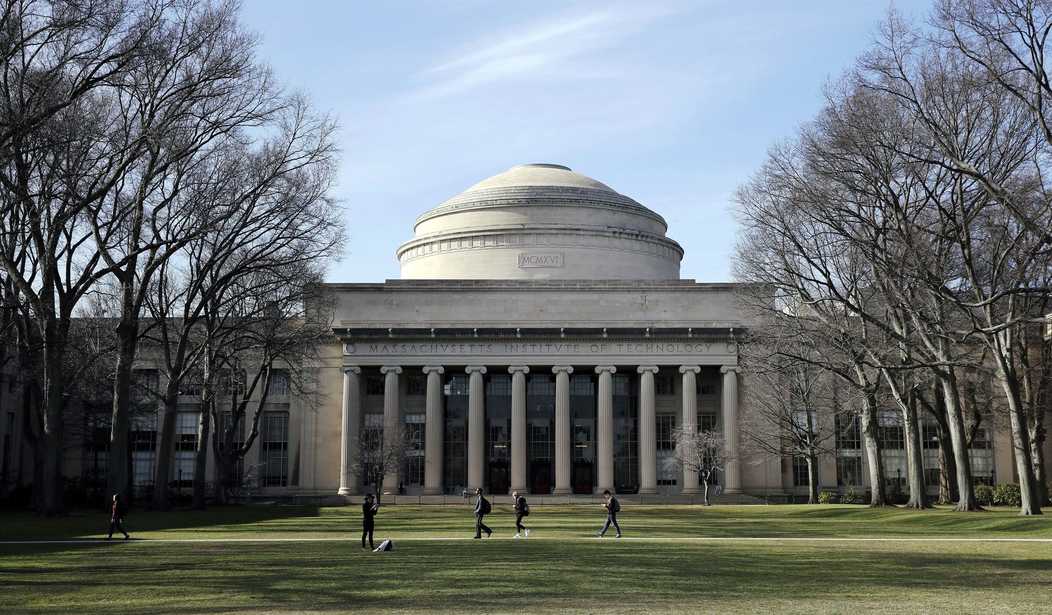When did we decide that arguing was intolerable? Possibly it was when we determined that arguments were not about whether we were right or wrong but whether we were good or bad. We had to be right (we are good), and the others to be wrong (they are bad). What had once been intellectual arguments buttressed on each side by facts and figures morphed into moral determinations. Those who agree with me are good people; those who don't are bad people.
Here's an example: Last month, the Massachusetts Institute of Technology disinvited Dr. Dorian Abbot, a professor of geophysical science at the University of Chicago, from giving the prestigious Carlson Lecture. His topic was to have been "climate and the potential for life on other planets." Note that the topic was to have been a scientific one, not a political one.
However, on Sept. 22, an online mob on Twitter targeted Abbot, and eight days later, MIT announced that they would not host the lecture to avoid controversy. The cancellation might have made sense if the concerns raised about Abbot had focused on his area of academic study. But they were not. The controversy stemmed instead from an Op-Ed that he and Dr. Ivan Marinovic, an associate professor of accounting at Stanford Business School, had written for Newsweek. The editorial, which was published in August, was titled, "The Diversity Problem on Campus."
In response to this cancellation, Abbot wrote an Op-Ed this week that appeared on Bari Weiss' Substack platform "Common Sense," titled "MIT Abandons Its Mission. And Me." In the Op-Ed, Abbot laid out the argument he had presented in Newsweek.
Recommended
His Newsweek Op-Ed had argued "that Diversity, Equity, and Inclusion (DEI) as it currently is implemented on campus 'violates the ethical and legal principle of equal treatment' and 'treats persons as merely means to an end, giving primacy to a statistic over the individuality of a human being.'" What he and Marinovic proposed in the Newsweek Op-Ed was "an alternative framework called Merit, Fairness, and Equality (MFE) whereby university applicants are treated as individuals and evaluated through a rigorous and unbiased process based on their merit and qualifications alone."
While you might argue against the argument itself, the online mob instead decided to label him an unfit person and called for him to be disinvited from the MIT lecture. That's what happened.
The Academic Freedom Alliance, which describes itself as "a non-profit organization whose members are dedicated to protecting the rights of faculty members at colleges and universities to speak, instruct, and publish without fear of sanction or punishment," wrote a letter in Abbot's defense. It "expressed our firm view that this disinvitation represents an egregious violation of the principles of academic freedom and an abnegation of MIT's own stated commitment to freedom of thought."
"The free and open exchange of ideas and viewpoints reflected in the concept of academic freedom may sometimes prove disturbing or offensive to some," according to MIT Policies and Principles 9.0, which the letter cited. "The examination and challenging of assumptions, beliefs or opinions is, however, intrinsic to the rigorous education that MIT strives to provide."
The point is that if you must agree with an argument, then there is no opportunity to examine it critically or to challenge it. Without examination and challenge, there is little in the way of learning.
"Universities should not shy away from controversy," AFA wrote. "They should certainly not yield to intimidation. They should be seeking to provide a forum in which disagreements can be openly expressed. Those disagreements will sometimes be intense and might be expressed in strong terms, but universities will be sacrificing their core values if they seek to suppress speakers who might elicit controversy or silence debate before it has even begun."
In question is what type of academic and therefore common culture do we want to live with? "Do we want a culture of fear and repression in which a small number of ideologues exert their power and cultural dominance to silence anyone who disagrees with them?" asked Abbot in his "Common Sense" Op-Ed. "Or do we want our children to enjoy truth-seeking discourse consisting of good-natured exchanges that are ultimately grounded in a spirit of epistemic humility?"
While it might be easier to go along with what others say, the easy way is not necessarily the best way. If you don't speak up when you have the chance, you might not have the chance later. Personally, I like the approach of getting in a good argument while being good spirited and humble.

























Join the conversation as a VIP Member